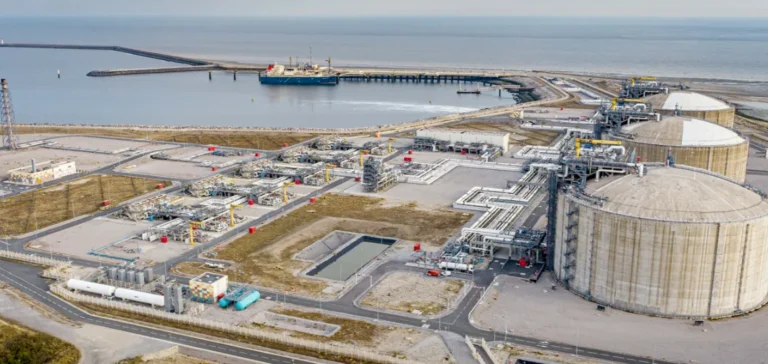Belgian group Fluxys has declared force majeure at its Dunkirk liquefied natural gas (LNG) terminal due to an ongoing strike led by French trade unions. The decision comes as delivery capacities at the site will be significantly limited for two consecutive days, with operations expected to normalise during the night of October 2 to 3.
Delivery capacity at the Dunkirk terminal will fall to 44 gigawatt hours on October 1 and 48 GWh on October 2, according to a bulletin issued by the operator. The force majeure declaration will remain in effect until 03:59 GMT on October 3. The disruption occurs as all four French LNG terminals are simultaneously impacted by strike actions, including those operated by Elengy.
A strategic terminal for France and Belgium
The Dunkirk terminal plays a key role in European LNG distribution, as the only continental site connected to two distinct markets—France and Belgium. It supplies around 20% of the annual gas needs for both countries. Any service disruption at the facility therefore has immediate consequences on cross-border flows.
The blockade has been extended by union representatives, who stated they would maintain their strike until demands are met. No end date has been specified. The impact on France’s import capacity is also felt across the region, as the country has become a critical transit hub since Russian pipeline deliveries to the European Union ceased.
Growing pressure on European supply chain
Since 2022, France’s gas exports have risen sharply, in part to offset the absence of Russian volumes. The country has established itself as a pivotal player in redirecting gas flows towards neighbouring European markets. The current strike comes amid Europe’s increasing reliance on LNG, particularly from Russia.
France remains the top European importer of Russian LNG, having received around 4 million tonnes during the first eight months of the year. A significant share of this volume is handled through Elengy’s Montoir-de-Bretagne terminal on the Atlantic coast, which is also affected by the ongoing strike.






















